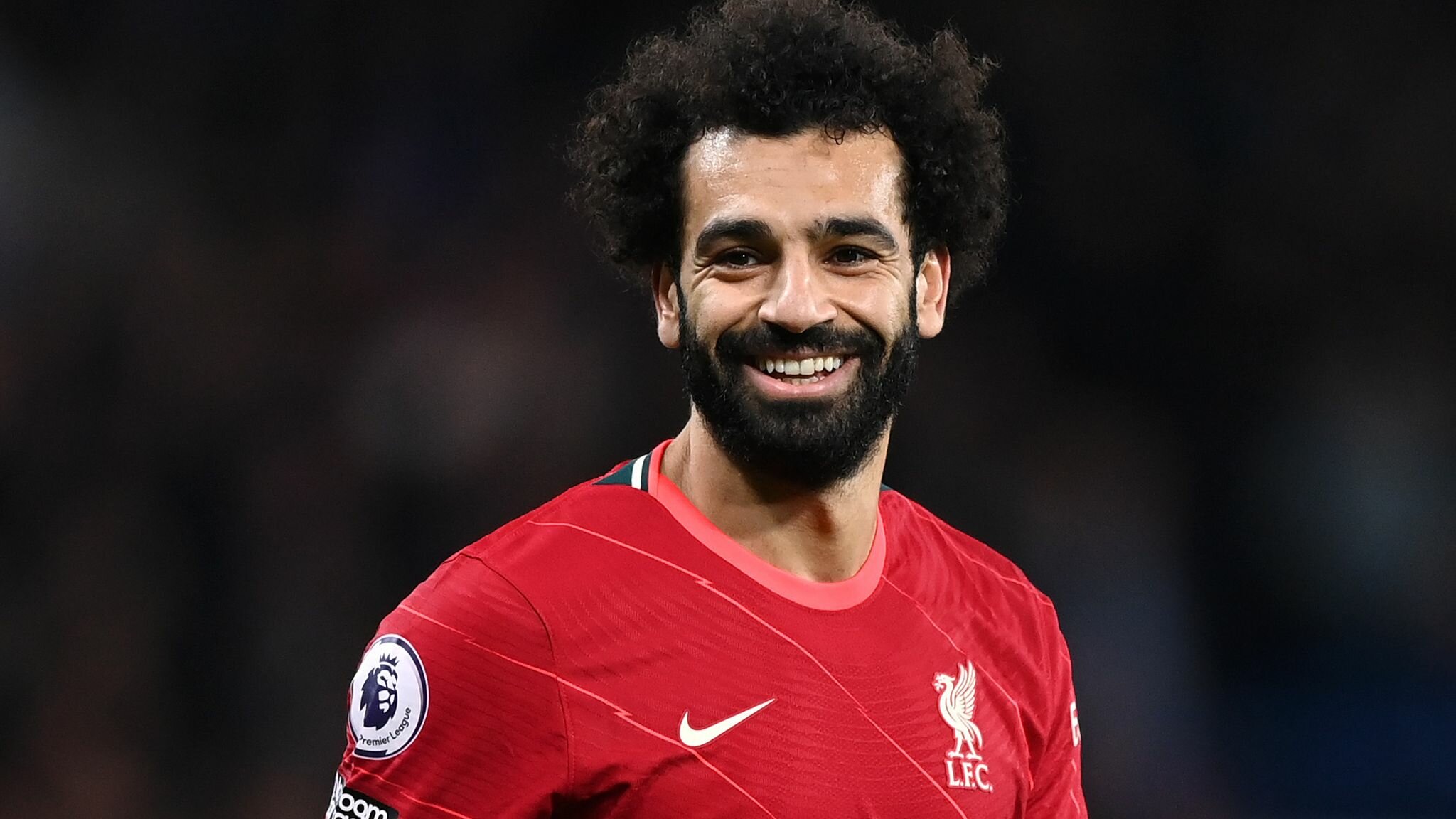Liverpool’s Egyptian forward Mohamed Salah has arguably been the Premier League’s outstanding player since arriving at Merseyside in the summer of 2017. Other names like Manchester City’s Belgian playmaker Kevin de Bruyne and Salah’s Liverpool teammate, Virgil van Dijk, might get bandied about in these conversations, but unlike Salah, both have had long spells on the sidelines due to injuries in the same period.
In his first season at Anfield, Salah broke the Premier League goalscoring record in a 38-game season with 32 goals and helped Liverpool get to the Champions League final. In the following seasons, he has won two more Premier League Golden Boot awards and been a significant contributor to Liverpool’s Champions League (2018-19), Premier League (2019-20), FA Cup and Carabao Cup successes (2021-22).
Salah can play across the frontline, is devastatingly quick, strong as an ox, and can dribble through a swarm of defenders. He’s also 30 years old, which is why there were some question marks when he was rewarded with a £350,000 a week deal last year that would keep him at the club till the 2024-25 season. Age, however, wasn’t the only grounds for questioning the decision.
Salah started the 2021-22 season in style, but his form dropped after participating in a physically and emotionally exhausting African Cup of Nations campaign in midseason. Liverpool’s sporting director, Michael Edwards, had also announced that he would leave this role at the end of the 2021-22 season after serving the club for 10 years. Edwards had one foot out of the door last season, with Julian Ward, the current sporting director, taking over midseason.
Edward was feted as a transfer guru during his time at the club. Edwards’ analytical background made him an ideal fit in this role for Liverpool’s owners, Fenway Sports Group (FSG), who championed the ‘moneyball’ approach for their Major League Baseball (MLB) team Boston Red Sox in the early noughties.
Handing such a lucrative contract to a player turning 30 seemed uncharacteristic of the Edwards era. Liverpool were breaking their carefully arranged wage structure to retain the services of Salah; their second highest earner is 31-year-old Virgil van Dijk, who earns £220,000 weekly.
Of course, players like Karim Benzema, Zlatan Ibrahimovic, Thiago Silva, Luka Modric and Robert Lewandowski have proved over the years that turning 30 isn’t a death knell for elite footballers, but there were some tactical considerations which made Salah’s case more peculiar. Salah’s primary role is on the left wing, which involves a lot of defensive work; he’s also far more reliant on his speed than some of the players mentioned above, and Liverpool under Jurgen Klopp have a dogmatic attachment to the high-intensity approach.
Liverpool’s drop-off this season can’t be fully pinned on Salah’s performances, but it’s already starting to look like an ill-advised move. There are also some intangible consequences to breaking a wage structure that can reverberate through the club.
Salah has scored 13 goals and provided seven assists in the Premier League this season, which is a satisfactory return. Still, he will likely end the season with his lowest league goals tally since joining the club. There is some time left for this season to end, but as things stand, Liverpool are paying Salah £700,000 for a goal contribution in the Premier League and £400,000 for a goal contribution in all competitions this season.
Salah’s previous deal was worth £250,000 per week. He was on this deal for four years and contributed to 86 goals and 36 assists during the duration of this deal in the Premier League and 112 goals and 43 assists in all competitions. Liverpool were paying Salah £371,000 for a goal contribution in the Premier League and £268,000 for a goal contribution in all competitions for the duration of the deal. These figures show that Salah hasn’t added more value to the side since being rewarded with a new deal. The duration of his previous contract doesn’t include the season where he broke the Premier League goalscoring record for a 38-game season, either.
Of course, Liverpool’s performance as a team haven’t been as cohesive as in previous years, which has affected Salah’s performance this year. Liverpool will argue that retaining Salah’s services are a sign of the club’s progress since the days of reluctantly selling Luis Suarez and Philippe Coutinho for big money, but selling them for big money helped build the team of the last few seasons. Salah has three more years to justify the new deal, but the first year has, undoubtedly, not gone to plan.














